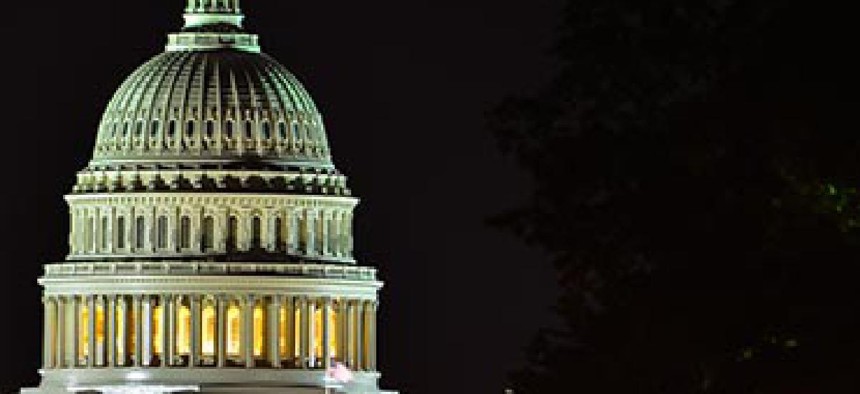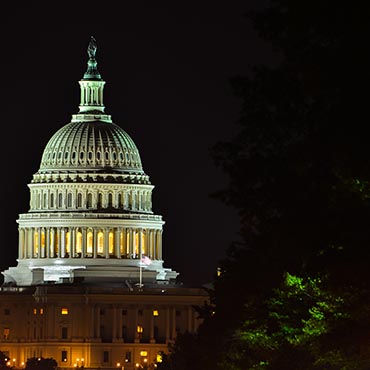House passes CR, but shutdown still looms

The House of Representatives voted to pass a month-long funding bill to keep the government open, but its Senate prospects are uncertain.

The House of Representatives passed a funding bill to keep the government open for another month in the evening of Jan. 18, but the measure is likely to face stiff Democratic opposition in the Senate.
The government shuts down without a new funding measure signed into law by midnight on Jan. 19.
The House bill passed by a vote 230 to 197, thanks to a last-minute deal with the conservative House Freedom Caucus, chaired by Rep. Mark Meadows (R-N.C.), which had withheld support for the stopgap funding bill.
The continuing resolution was debated in the afternoon, but the House presiding officer called for a recess in advance of a vote, when it appeared the bill would go down in defeat. A few hours later, Meadows indicated that his camp was won over with a promise to end caps on defense spending and a pledge of leadership support for a conservative immigration bill introduced by House Judiciary Chairman Bob Goodlatte (R-Va.)
The continuing resolution itself includes a six-year extension of the expired Children's Health Insurance Program but nothing on the fate of the approximately 700,000 young people who have some legal status under the Obama-era Deferred Action for Childhood Arrival program. That status is due to expire in March. Democrats in the House and Senate are pushing for a fix as part of the spending bill.
Action now moves to the Senate, where a 60-vote majority is required for passage.
"Now it's up to the Senate," House Speaker Paul Ryan (R-Wis.) said in a statement. "Now will Senator Schumer and the Senate Democrats do the right thing by the American people, or will they force a government shutdown?"
That remains to be seen. Republicans have 51 members. But several senators are on record as opposing the bill and John McCain (R-Ariz.) is away from Washington undergoing cancer treatment. Majority Leader Mitch McConnell (R-Ky.) may have to round up as many as 14 Democratic votes to pass the bill, and that appears to be a tall order. Early comments from Democratic sources to Capitol Hill publications and others suggest that Democratic support will be in short supply.
While the Senate voted to open debate late on Jan. 18, Majority Leader Mitch McConnell (R-Ky.) declined a Democratic proposal for a quick vote in order to give the House time to work on a two-day funding bill on Friday to buy time for further negotiations. If the Senate can't pass the bill on Jan. 19, there will be very little time left on the shutdown clock to even entertain the option of a two-day stopgap.
President Donald Trump is on record as supporting the continuing resolution as written.
"I really believe the Democrats would like to see a shutdown in order to get off that subject [of tax reform]," Trump said to reporters on a visit to an industrial site in Pennsylvania
A Trump shutdown "would look very different than it would under the previous administration," according to Mick Mulvaney, director of the Office of Management and Budget. Speaking on Fox News Business on Jan. 17, Mulvaney indicated that national monuments would be kept open, despite a lack of staff.
NEXT STORY: Connolly, Schatz push to give feds a pay raise



